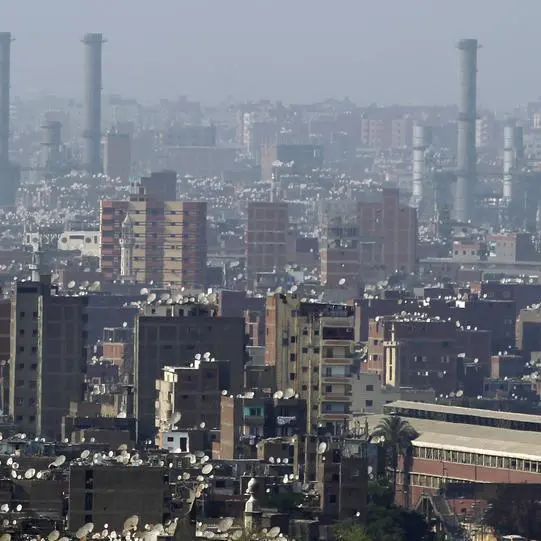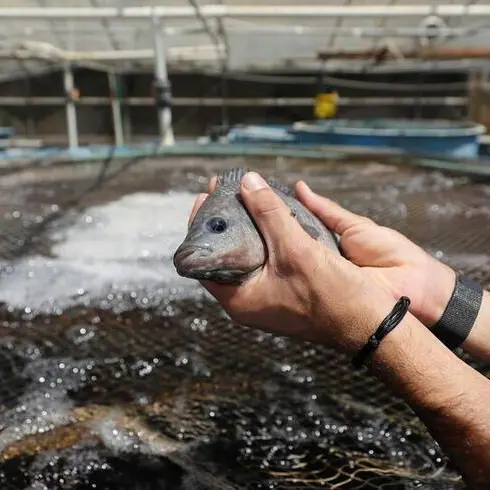PHOTO
Egypt is likely to require up to 120,000 new hospital beds in the next ten years to meet the needs of a growing population, with half of the investments coming from the public sector.
The Arab world's most populous country would require up to 120,000 new beds by 2030 (based on MENA ratio of 1.9 beds / 1,000 population) with an estimated investment of $35 to $40 billion, according to Mansoor Ahmed, Director of Research & Advisory, Healthcare, Education & PPP, Colliers- MENA Region.
Last year, Egypt’s population crossed the 100 million mark, an annual increase of around two percent.
On the lower side, based on Egypt's internal ratio of 1.3 beds / 1,000 population, the total number of beds required by 2030 would be approximately 38,000 at an estimated investment of $12 to $15 billion, he noted.
Ahmed was speaking at the 7th virtual conference of the British-Egyptian Business Association (BEBA) on the topic of the future of healthcare investment in Egypt in the context of the COVID-19 pandemic.
He highlighted that an additional 88,000 doctors, 78,000 nurses, and 18,000 pharmacists would be needed by 2030, increasing demand for medical education institutions.
Ahmed said Colliers is advising several international healthcare operators and investors keen to expand into Egypt and is also promoting Public-Private Partnerships (PPP) to increase the overall hospital count.
He also advised that developing healthcare cities on the lines of Dubai would help Egypt and African countries meet the demand for high-quality, patient-centered healthcare. At the same time, medical tourism in areas like the North Coast would contribute to Egypt's GDP and create jobs.
Expanding into Africa
Ahmed Ezz El-Din, CEO of Cleopatra Hospitals Group (CHG), pointed out that Egypt is an ideal location for healthcare investment, with 2.5 million children born every year. The Group currently operates seven hospitals in Egypt.
Ezz El-Din also pointed out that the Group is currently looking to capitalise on its national success and expand to Africa to benefit from the growing healthcare market in the continent.
Maged George, Chairman of Export Council for Medical Industries, said there is huge potential for making use of Egypt's agreements with regional organisations such as the Southern African Development Community (SADC) and Common Market for Eastern and Southern Africa (COMESA) to grow exports of medical equipment to African and Middle Eastern countries.
He said Egypt is working on bilateral agreements with the health ministries of several African nations to register Egyptian medical products in these countries to support exports.
Khaled El Shaarany, CEO, AXA Africa Health, underlined that health insurance penetration in Egypt is among the lowest worldwide resulting in 80 percent of medical expenses being covered as an "Out of Pocket" expense.
He added that medical expenses would increase because of the longevity of the population, high costs of advanced healthcare technologies, and macro-economic drivers.
El Shaarany said the company's newly launched Africa-centred initiative called OneHealth aims to provide primary and secondary healthcare through its chain of polyclinics, digital health, and home visits.
OneHealth, headquartered in Egypt, is operating four clinics in Cairo with additional four clinics scheduled to open by year-end with launches in Nigeria and West Africa.
Nabil Besri, General Manager GSK Consumer Healthcare North and Central Africa, said his company is looking forward to launching a new self-care programme in Egypt to improve preventive health measures among citizens.
Dr. Ashraf Hatem, Former Minister of Health and Chairman of the Health Committee in the House of Representatives, said in his keynote speech at the start of the event that Egypt's healthcare sector has received $7.5 billion of investments since President Abdelfattah El-Sisi initiated structural reforms in the sector.
(Writing by N Madhura; Editing by Anoop Menon)
Disclaimer: This article is provided for informational purposes only. The content does not provide tax, legal or investment advice or opinion regarding the suitability, value or profitability of any particular security, portfolio or investment strategy. Read our full disclaimer policy here.
© ZAWYA 2021





















